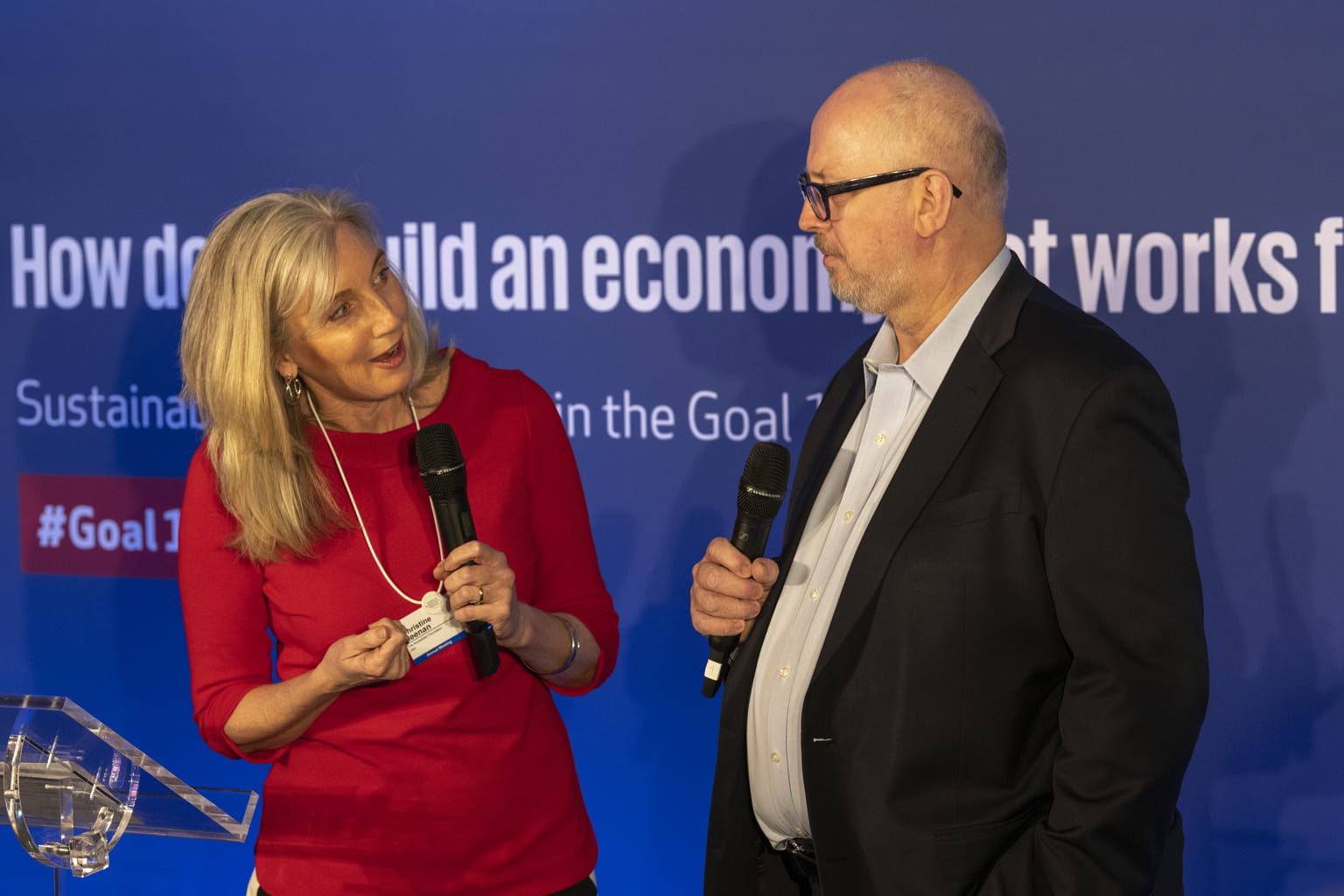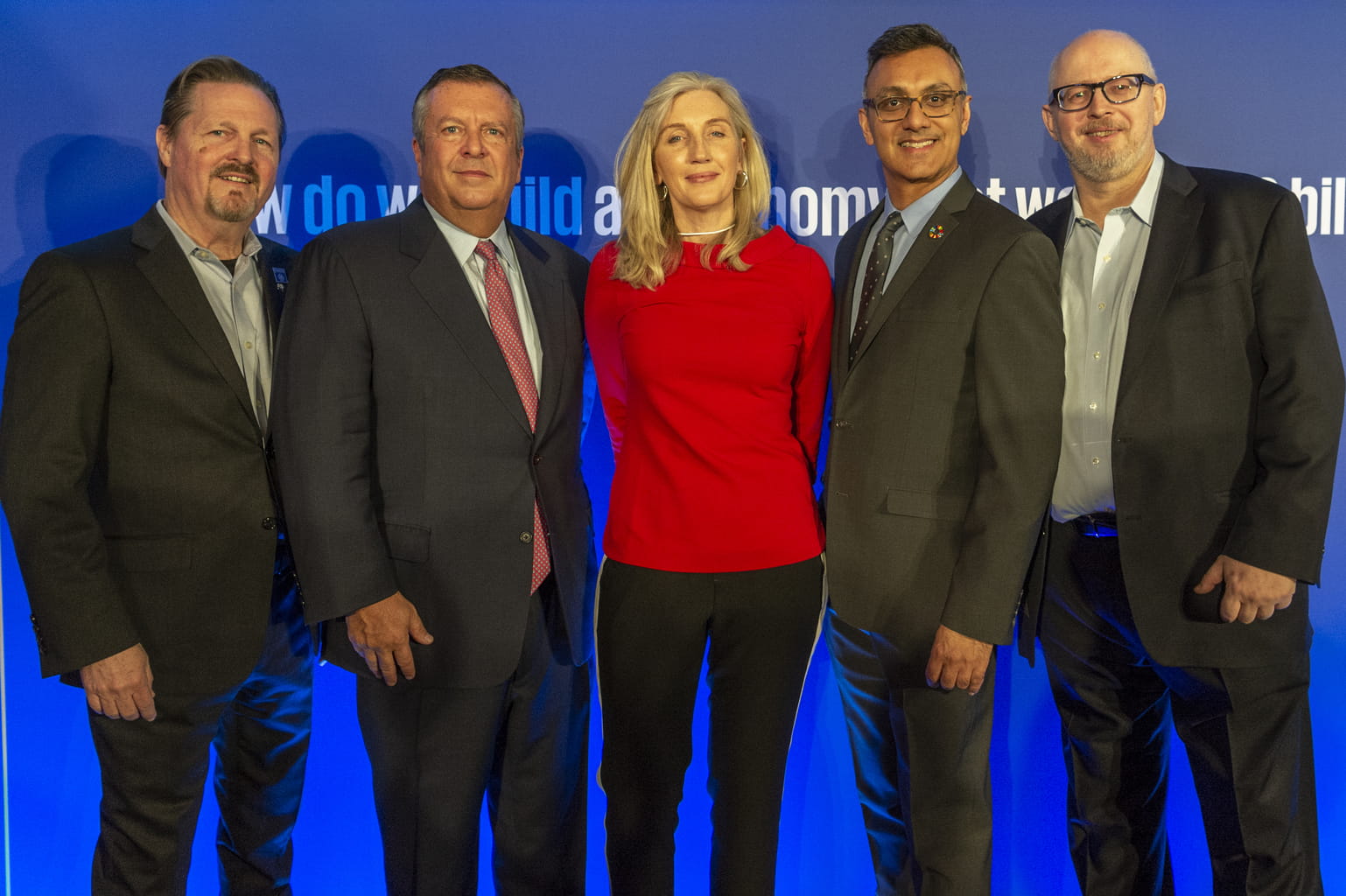How to Solve the World’s Greatest Challenges
Goal 17 Partnership Space Kicks Off Davos Search for Solutions
Global partnerships represent a foundation for optimism about the world’s future, in contrast to the pessimistic mood of the international community, according to several of the leading advocates for sustainable development at the World Economic Forum.
Speaking at the launch event of the Goal 17 Partners space in Davos, Switzerland, Matthew Bishop, Managing Director of The Rockefeller Foundation, said: “We are really grateful that partnership is getting so much attention, because we think that without partnerships there is no chance that we will meet the SDGs [Sustainable Development Goals]. At a time when we are hearing a lot of negative thinking around the world, we hope to hear in this space and in Davos this week a lot of fact-based, reality-based optimism and a commitment to action.”
The Goal 17 Partners space aims to underscore the importance of partnerships in achieving lasting change, a goal articulated in Goal 17 of the United Nations’ 17 Sustainable Development Goals (SDGs). The sponsoring partners for the space are The Rockefeller Foundation, World Wildlife Fund, the United Nations Foundation, Ericsson, and Guggenheim Partners.
Christine Heenan, The Rockefeller Foundation’s Vice President for Global Policy and Advocacy, explained the partnership strategy behind identifying specific global problems and its #Solvable campaign. “The Foundation is very focused on science-driven, partner-driven philanthropy," she said. "We think that science holds the key to solving most of the major global challenges we still face, and partnerships hold the key to scaling the solutions. We are big believers in coming together to solve what’s solvable.”
 Christine Heenan and Matthew Bishop of The Rockefeller Foundation, at the launch of the Goal 17 Partners Space in Davos, Switzerland
Christine Heenan and Matthew Bishop of The Rockefeller Foundation, at the launch of the Goal 17 Partners Space in Davos, SwitzerlandFor the UN Foundation, partnerships are essential to advancing the SDGs. Rajesh Mirchandani, Chief Communications Officer for the UN Foundation, said: “We all know that the issues we face together—climate change, pandemic risk, migration, cyber security, inequality—cannot be solved unilaterally. We have to work together to do it. I’m glad to see so many platforms for this in Davos, and I am also happy to see so many programs here for young people.”
The Goal 17 Partners represent a broad spectrum of organizations committed to sustainable development. For the World Wildlife Fund, that diversity of partnerships is a key strength moving forward. David McCauley, WWF’s Senior Vice President of Global Partnerships and Multilateral Engagement, noted because “achieving sustainable development requires cooperation across sectors and perspectives, the formation of strategic partnerships and coalitions is essential.” He added that “the Goal 17 Space illustrates how institutions with very different mandates can come together to create synergies in common purpose.”
 David McCauley of WWF, Jerry Miller of Guggenheim Investments, Christine Heenan of The Rockefeller Foundation, Rajesh Mirchandani of the UN Foundation, and Matthew Bishop of The Rockefeller Foundation
David McCauley of WWF, Jerry Miller of Guggenheim Investments, Christine Heenan of The Rockefeller Foundation, Rajesh Mirchandani of the UN Foundation, and Matthew Bishop of The Rockefeller FoundationJerry W. Miller, President of Guggenheim Investments, discussed his firm’s leadership in sustainable development and the importance of partnerships in achieving the SDGs. “It is a privilege to share this space with such a strong and committed group of partners—to demonstrate areas in which we each play leadership roles, to convene experts across disciplines, and most importantly to learn from one another,” he said.
The WEF’s Annual Meeting in Davos, Switzerland, draws business and political leaders from around the world. Organized around the theme of “Globalization 4.0 and the Fourth Industrial Revolution,” this year’s program aims to foster dialogue between business and political leaders at a time of rising populism and isolationist rhetoric around the world.